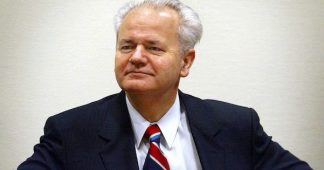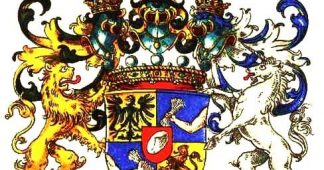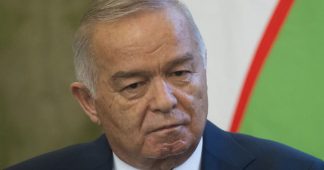By Giulietto Chiesa
Moving forward after the death of Islam Karimov will be difficult and secret services and diplomats around the world will be involved. Uzbekistan is a crucial country in post-Soviet Central Asia and taking control of it, directly or through a third party, will be a move of highly strategic value.
And this uncertainty — which, among other things, prohibited the interim leaders of the country from immediately announcing the news of his death — already says a lot about the political disaster that Karimov’s long reign in power produced. They took the time required to put back together, as best as possible, the pieces of a regime that was breaking apart with his passing.
However, leaving the predictions to the experts, we can offer a panoramic view of the state of affairs in this area that was a large piece of the former Soviet Union. The recent declaration of the latest offspring of the Rockefeller family comes immediately to mind: to liquidate the USSR — the elder Steve Rockefeller basically said this — it was necessary and sufficient to convince the leaders of the Soviet republics, and the heads of their states and peoples, that they would fare better alone, if they were separated from the great sick body of the Union. “Now — he added — all those that took part in the operation are worse off”. ([Editor’s note:] He was referring to the respective peoples, not their leaders.) This is why that fable can no longer be fed to the people of the present Russian Federation.
In the Empire of Good Intentions, this was their way of reasoning, and it still is. And, if one really thinks about it, they weren’t wrong. Except that, mutatis mutandis, they were thinking the same thing inside the Evil Empire. I remember that Aleksandr Solzhenitsyn, in his “Letter” to future Russian rulers while the USSR was still standing, invited them to get rid of “Asian girth”. In this disdainful definition, there was an entire project for a Christian and Orthodox Great Russia, oriented towards tradition, alien to the rest of the world, which would have had to free itself from the obstacles of various cultures and civilisations in order to fully enjoy their own values and the strength of its own people.
The Russian “democrats” of that time became the spokespeople of that message.
They rewrote it, giving it a “progressive” spin: Putting an end to the Soviet Union, this modern prison of the people, will ultimately enable us to gain a multiplicity of democratic states under the protection of the Empire of Good. Starting with Russia, which could be, more so than all the others, prosperous, rich, democratic, free and obviously, an exporter of raw materials for centuries to come.
All these illusions, as we well know, were all smashed by the hammer of cold hard reality, as our own Niccolò Guicciardini would have said. A quarter of a century later and most of Central Asia has not even reached the doorstep of this “liberal democracy” sought after and envisioned by the Russian “democrats”. And this same Russia, while trying to free itself from the Yeltsin legacy, has been struggling to regain not only the standard of living which it had during the Soviet era (still not yet achieved) but above all its very political sovereignty and its rightful place in the world.
The best thing Karimov, like Saparmurat Niyazov of Turkmenistan and other former communist leaders, could think to do was take the power left vacant by the suicidal communist party and transform it into a “secular” satrapy. But the term “secular” only serves to indicate that they had to fight a resurgent Islam that was seeking to emerge from the catacombs where it had continued to live.
As for a “liberal democracy”, there was no room for that in Central Asia. Paradox of paradoxes, it was the Soviet Union itself that ushered in “modernity”, as Nikita Khrushchev liked to say: “Socialism ends where the light poles do stop”. And it was only after the Soviet intervention in Afghanistan that women were allowed again at universities and miniskirts were seen in Kabul being worn not only by Russian “occupiers” by also by Afghan “occupied” girls.
And so, with Islam (his name is an ironic twist of fate) Karimov exiting the stage, they will also have to bury the dreams of the West.
You may read also:
A “futuristic” comment from Turkey on Uzbekistan
Uzbekistan in the imperial strategy of USA
KARIMOV’S DEATH OPENS THE WAY FOR ISIS
Giulietto Chiesa is one of the best known Italian journalists. He was Moscow correspondent for twenty years for “L’Unità” and “La Stampa”. He worked with all major Italian television channels, from the TG1 to TG3 and TG5 and is currently political analyst for major Russian television channels. He is the only Italian journalist to be repeatedly mentioned in the autobiography of Mikhail Gorbachev, whom he has repeatedly interviewed. He writes a blog for “Il Fatto Quotidiano”. His own blog is http://www.megachip.info/ . He is founder and director of Pandoratv.it web tv. An expert in international politics and communications scholar, he founded the political-cultural movement “Alternativa”. Among his credits there are some best-sellers such as “Endless War”, “Superclan” (with Marcello Villari), “Barack Obush” (with Pino Cabras) and the movie “Zero, an inquiry into 9/11”. He is one of the initiators of Sofia Club and of the Delphi Inititative. His new book, “Putinophobia” is to come out simultaneously in France, where the author was invited as a guest at the Paris Book Fair, and in Russia.











